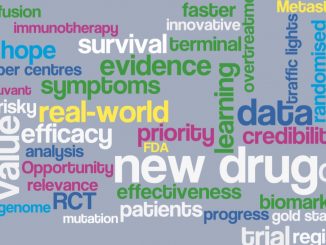Our systems for evaluating new therapies are only as good as the accuracy of the judgements we make about how far patients benefit and how far they feel the burden of side-effects and other drawbacks. In this Editorial we welcome moves on both sides of the Atlantic to include patients own assessments into evaluation procedures, and draw attention to opportunities to engage with these efforts.
 For many years, patient advocates have fought to have a patient perspective included in different aspects of cancer drug development and regulation, but progress to date has been slow. A number of recent developments are now showing encouraging signs of change. The European Medicines Agency (EMA) has just issued a reflection paper on patient reported outcome (PRO) measures in cancer drug regulation, with the aim of promoting an open discussion on the value of PRO data in the regulation of cancer medicines. This initiative signals a timely acknowledgement by the Agency of not only the strengthening of PRO methodology but also the need to hear from patients when evaluating a new medicine.
For many years, patient advocates have fought to have a patient perspective included in different aspects of cancer drug development and regulation, but progress to date has been slow. A number of recent developments are now showing encouraging signs of change. The European Medicines Agency (EMA) has just issued a reflection paper on patient reported outcome (PRO) measures in cancer drug regulation, with the aim of promoting an open discussion on the value of PRO data in the regulation of cancer medicines. This initiative signals a timely acknowledgement by the Agency of not only the strengthening of PRO methodology but also the need to hear from patients when evaluating a new medicine.
A PRO is a report of a patient’s experience that is evaluated directly by the patient and is based on their perceptions, without external interpretation. There is growing awareness that collecting this sort of data can provide valuable evidence about the efficacy and safety of a new medicine – an important consideration given that multiple studies have shown that physicians and nurses frequently underestimate the true impact the disease and treatments have on patients.
PRO measures have the potential to provide clinically relevant information that is not captured by conventional anti-tumour efficacy and safety data; however, methodology challenges have steered European regulators away from using such data when making marketing authorisation decisions about a new medicine. Indeed, over the past decade, health-related quality of life data have rarely, if ever, swayed EMA’s decisions However, ongoing initiatives, such as the US National Cancer Institute’s effort to develop a Patient Reported Outcomes version of the Common Terminology Criteria for Adverse Events grading scale (PRO-CTCAE), are starting to provide regulators with the scientifically rigorous approaches they require to be more confident about the value of PRO data.
As a consequence of these and other initiatives, patient advocates now have a unique opportunity to ensure that drug developers and regulators pay adequate attention to the patient viewpoint. A key question is whether patients are equipped to contribute at this level, which is where another important European initiative – the European Patients’ Academy on Therapeutic Innovation (patientsacademy.eu) – comes into play. This September, 55 patient advocates became the first to enrol on EUPATI’s ‘expert-level’ training, specifically tailored to building their capacity to understand and play a role in the process of researching and developing new drugs.
Equipped with the necessary expertise, advocates can play an important role in helping ensure that the cancer medicines that come to market in the future truly meet unmet need and are not unduly burdensome for patients. These initiatives are all welcome progress towards ensuring that patients are where they belong, at the centre of all our efforts.
Interested parties have until the end of November to provide feedback on EMA’s reflection document, which can be accessed at: www.ema.europa.eu/docs/en_GB/document_ library/Scientific_guideline/2014/06/WC500168852.pdf





